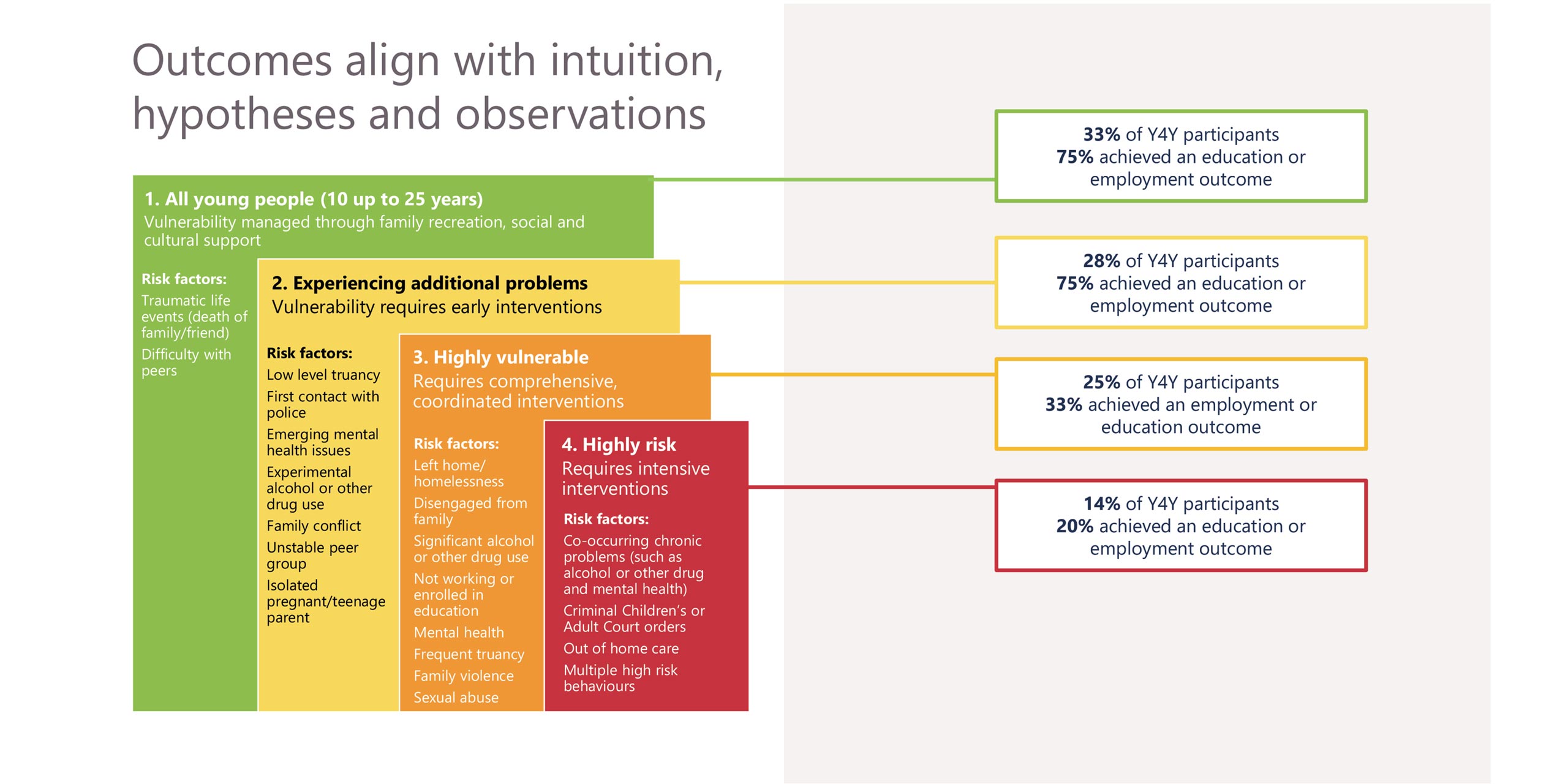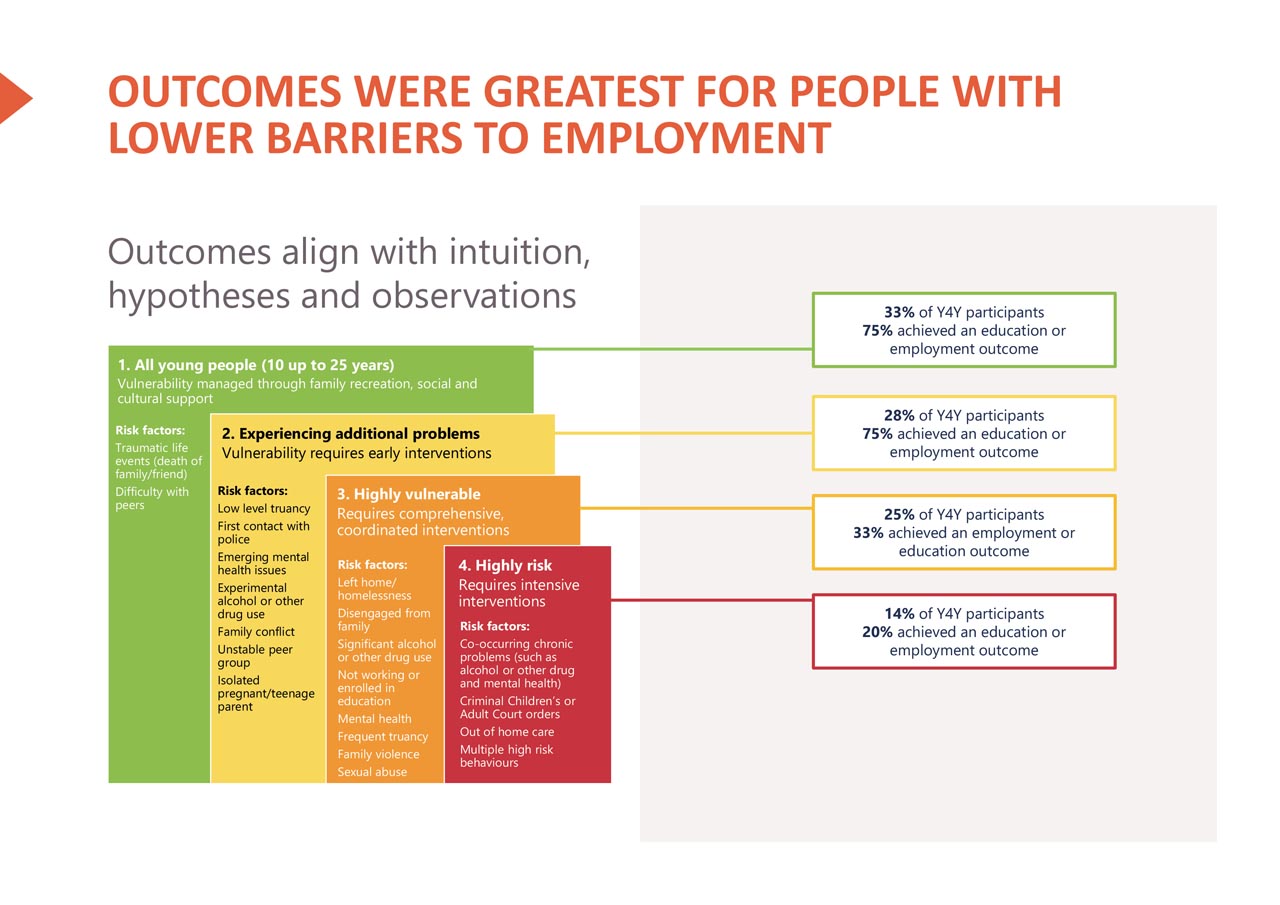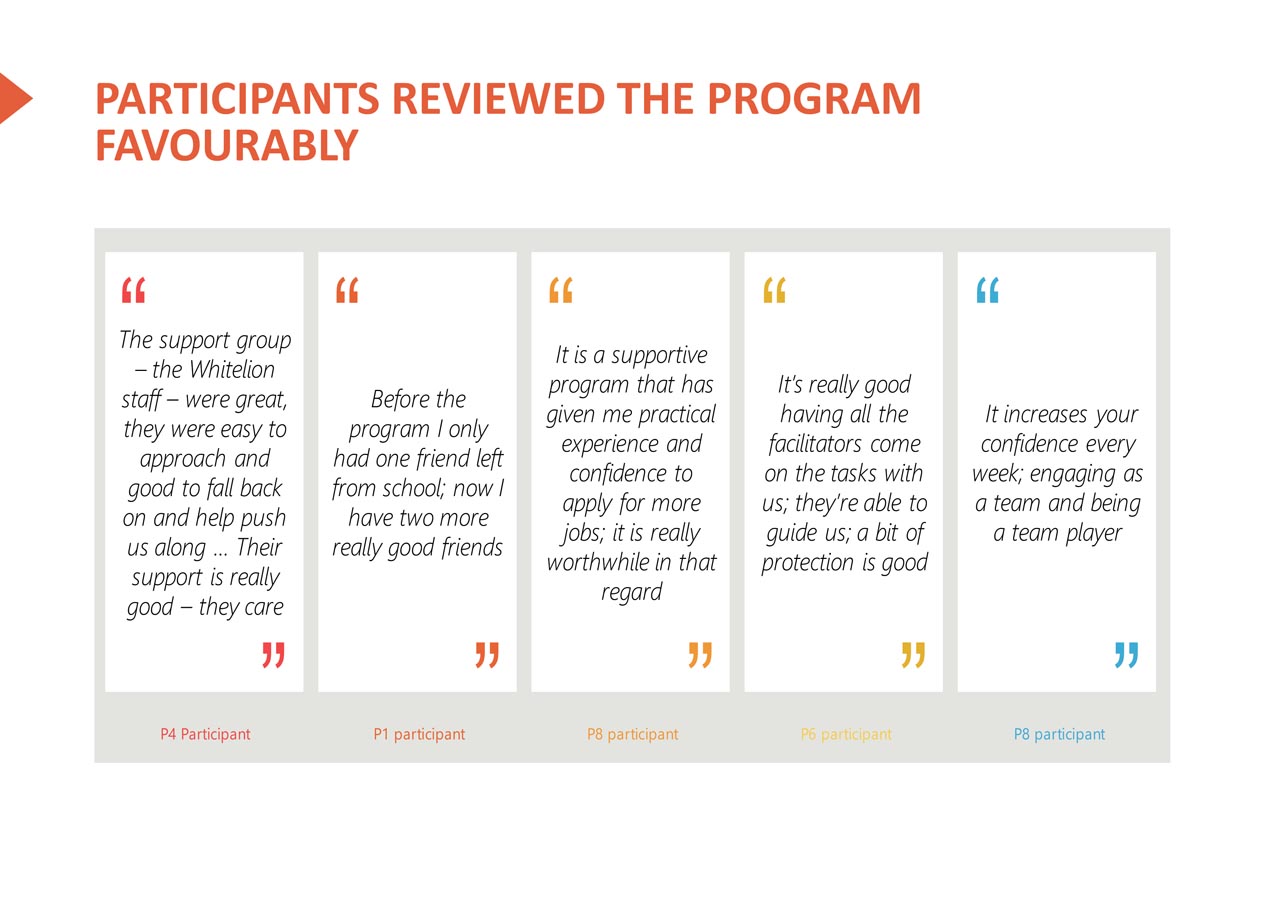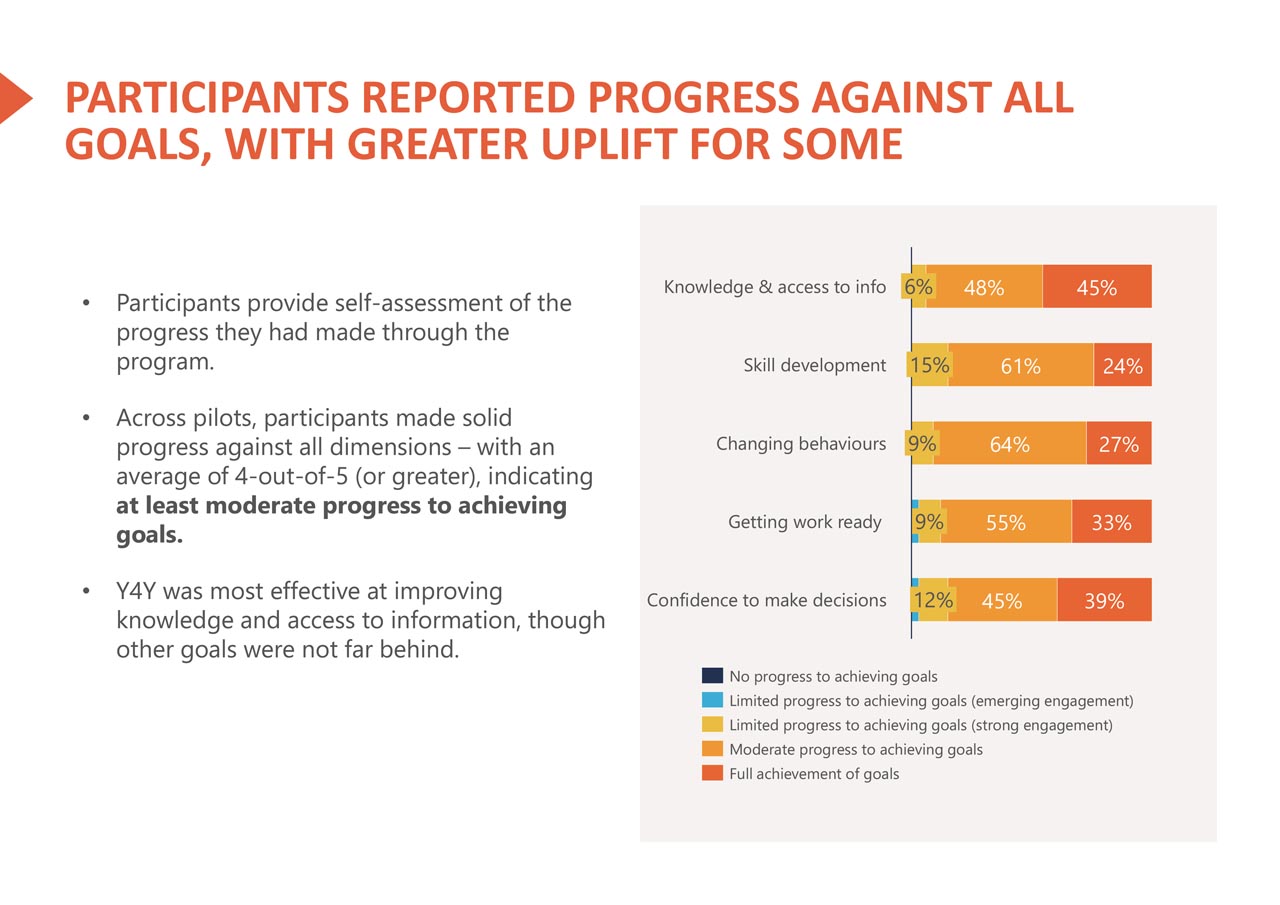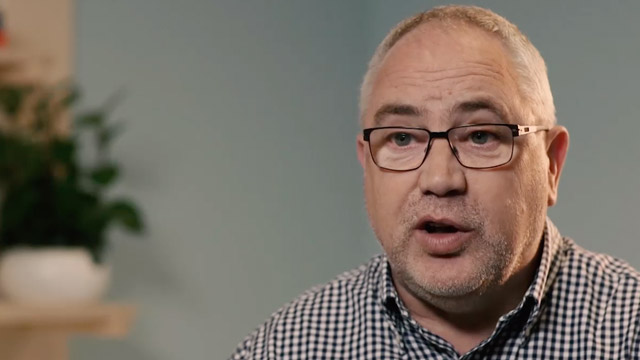We developed Y4Y over nine pilots with 80 young people. We tested ideas and iterated the design to improve the program. It involved a participatory design with young people, drawing on their insights and life experiences; design critiques from Y4Y staff; and daily feedback.
This led to a five-week program. Each week combined two days of training with two days in which participants use their enterprise skills under supervision.
Y4Y helped teams take on paid helper tasks found online, such as lawnmowing. The participants were given an office, laptop computers, a uniform allowance, tools of the trade and supporting staff.

